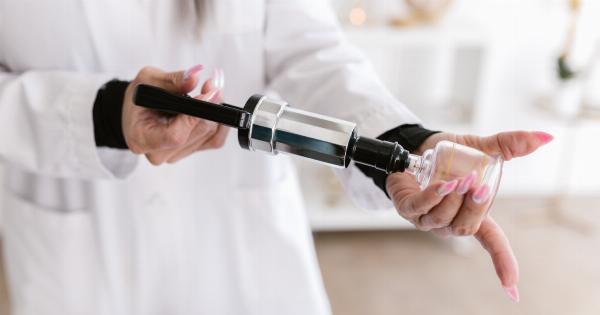A newly discovered syndrome has sent shockwaves through the medical community, leaving doctors and researchers puzzled by its mysterious origins and intense symptoms.
This enigmatic condition, known as Acute Chronic Pain Syndrome (ACPS), affects individuals of all ages and backgrounds, leading to debilitating pain that can significantly impact the quality of life.
The Symptoms of Acute Chronic Pain Syndrome
Patients suffering from Acute Chronic Pain Syndrome report experiencing excruciating pain that persists for extended periods. The intensity of the pain varies but is often described as severe, sharp, or stabbing.
The affected individuals frequently describe the sensation as though their nerves are on fire, making it difficult to engage in even simple daily activities.
Other common symptoms of ACPS include:.
- Chronic fatigue
- Insomnia
- Muscle stiffness and weakness
- Inability to concentrate
- Frequent headaches
- Memory problems
The symptoms of ACPS can become so intense and persistent that they lead to depression, anxiety, and a significant decline in overall mental well-being.
The pain associated with this newly discovered syndrome can seriously impair an individual’s ability to work, perform daily tasks, and maintain interpersonal relationships.
Causes and Risk Factors
Although the exact cause of Acute Chronic Pain Syndrome remains unknown, experts suspect the following factors may influence its development:.
- Physical injury or trauma
- Underlying medical conditions, such as fibromyalgia or rheumatoid arthritis
- Genetic predisposition
- Psychological factors, including stress and trauma
- Autoimmune disorders
Researchers are actively working to unravel the complex interactions of these various factors in order to gain a deeper understanding of ACPS.
By identifying the root causes, doctors hope to develop more effective treatment strategies to alleviate the chronic pain associated with this debilitating syndrome.
Diagnosis and Treatment
Diagnosis of Acute Chronic Pain Syndrome remains challenging due to the lack of specific tests or biomarkers.
Healthcare professionals typically rely on a comprehensive evaluation of the patient’s medical history, physical examination, and the persistence of pain for over three months to make a diagnosis.
Currently, treatment for ACPS focuses on pain management and improving the patient’s overall quality of life. Treatment options may include:.
- Pain medications, including opioids and nonsteroidal anti-inflammatory drugs (NSAIDs)
- Physical therapy and exercise programs
- Psychological counseling and therapy to address the emotional impact of chronic pain
- Complementary approaches, such as acupuncture or massage therapy
- Alternative treatments, including medical cannabis
Each person with ACPS may respond differently to treatments, and a personalized approach is necessary to find effective pain relief and management strategies.
It is crucial for patients to work closely with their healthcare providers and communicate any changes in symptoms or medication side effects.
Research and Future Outlook
Given the relatively recent discovery of Acute Chronic Pain Syndrome, research on this condition is still in its early stages.
Scientists around the world are working diligently to investigate the underlying mechanisms, potential genetic factors, and novel treatment options.
Advancements in technology and genetics have provided promising avenues for further exploration. Researchers are studying the role of specific genes in pain processing and exploring how targeted therapies can modify their expression.
Additionally, studies focusing on the link between psychological trauma and ACPS offer hope for new interventions that address both the physical and emotional aspects of the syndrome.
With continued research and collaboration, medical professionals are optimistic about establishing effective approaches to diagnose, treat, and potentially prevent Acute Chronic Pain Syndrome in the future.
Conclusion
Acute Chronic Pain Syndrome is a newly discovered condition characterized by intense and persistent pain, often accompanied by various other debilitating symptoms.
While the exact causes remain unknown, medical experts suspect a combination of physical, genetic, and psychological factors contribute to the development of this syndrome.
Current treatment strategies focus on pain management and improving the quality of life for those affected.
However, ongoing research offers hope for more targeted interventions and better understanding of the underlying mechanisms behind this enigmatic condition.






























